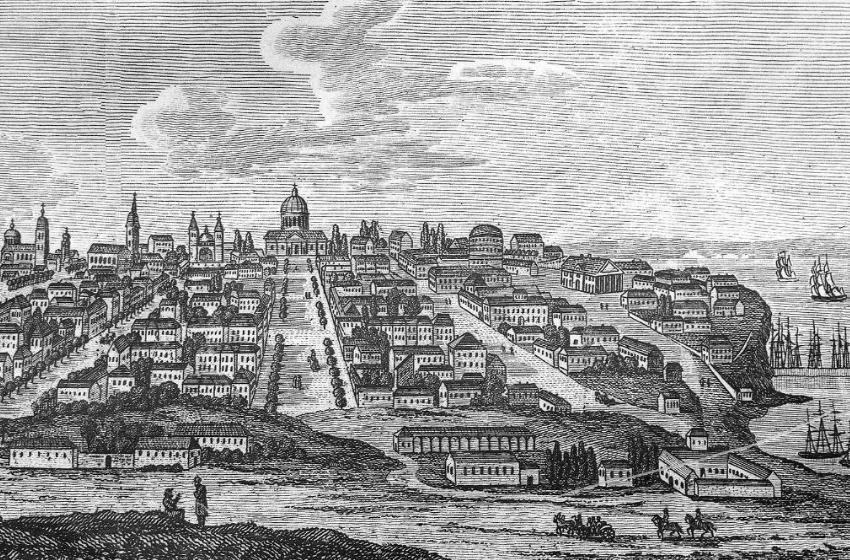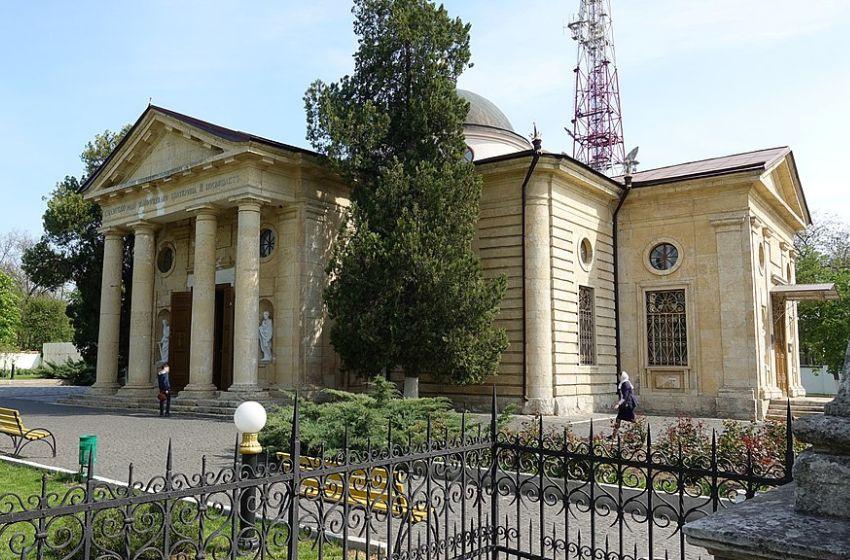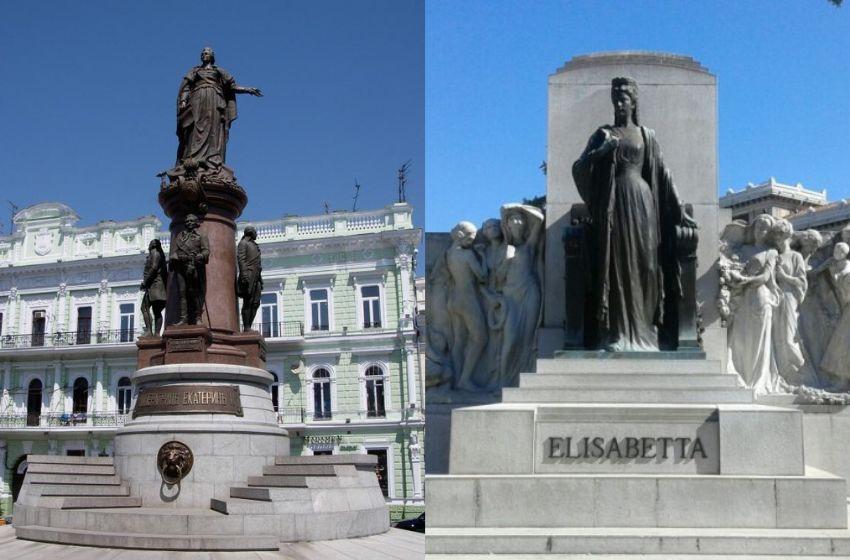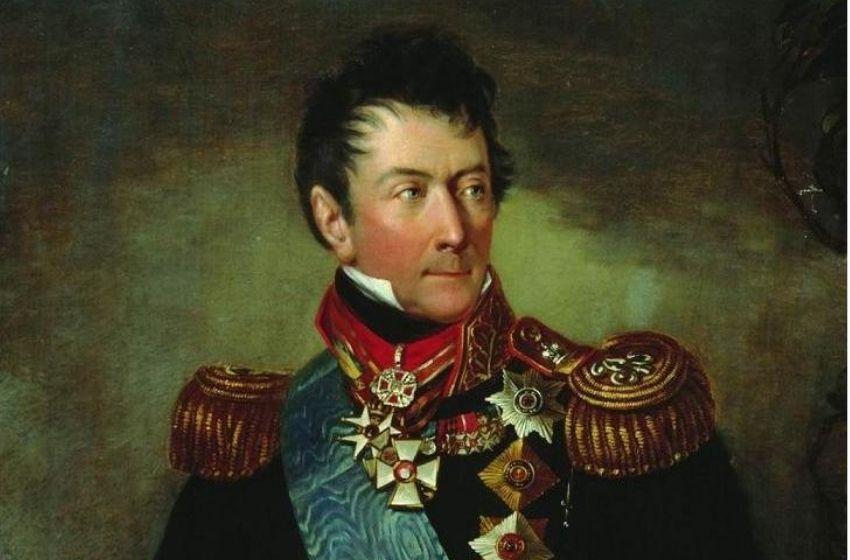The lack of water and temper of Catherine II, the name of an ancient Greek settlement or Deribas' fascination for Homer's "Odyssey" - what was the reason for the appearance of such a pleasant and tender name near the port and city located in the bare steppe?
By the materials of Lotsia
After the conquest of the Turkish Khadzhibey in 1789, located on the site of present-day Odessa, and before the announcement of the creation of a port in the harbour and a city, almost five years passed. There is a legend that José Deribas, a Naples-born navy officer, tried to convince Catherine the Great that a port for the Russian Empire in this place was necessary. And then, finally, it happened: the empress decided that a new city was authorised, but the Turkish name had to be changed.
At the end of the 18th century, the conquered territories were often called by ancient Greek names. What was in the territory of Khadzhibey? The answer was: the ancient Greek settlement of Odessos. And then, in 1794, Catherine II, who was a feminist ante litteram, commanded to change the masculine gender of this name to feminine and named the new city Odessa. In fact, much later, it was known that there were many settlements in Odessos, and the city is just located in the place of the ancient Greek Istrian, but this is another story.

Odessa Fine Arts Museum
Another legend says that during one of the receptions in St. Petersburg, José Deribas whispered to Catherine II about the need for a new port and city on the conquered Khadzhibey. Still, someone voiced (in French, naturally) the main argument against. They said that the problem there was water, which in French sounds like "c'est de l'eau" (= it is water). And then, allegedly, the empress got angry and declared that there would be water in this city and agreed to build a city with the reverse side name: O-de-ssa. But, despite some romance, the version defies criticism. Although beautiful.

But the most romantic version was suggested by the Odessa ethnographer Andrey Dobrolyubsky. In his opinion, in a nutshell, José Deribas, like many of his contemporaries, was a famous adventurer, Homer's admirer and a man with grandiose ideas. And so he, imitating Odysseus from the poem of the same name, hit the road. And the Turkish Khadzhibey won. And although both Potemkin and Suvorov were not particularly interested in the new and somewhat problematic territory (bare steppe, lack of freshwater, trees, and so on), Deribas nevertheless promoted the idea of ​​creating a port and a city here.
And by the way, another legend says that when Deribas entered Khadzhibey, he said that there was only the Turkish fortress Yeni-Dunya and three old pears. But such trifles did not bother the Italian adventurer, and he still convinced Catherine II that the idea was good. And the empress gave her consent to the creation of the city, which became a monument to the Odyssey of José Deribas, and therefore was named Odessa.
But the future Odessa had a lot of opponents, all high-ranking and very respected people. But, as Dobrolyubsky writes, De Ribas, armed with intrigue and crime, won his Odessa. And in the records of Franz de Wollant - the first Odessa engineer and architect - there are words that "tempting and greedy warnings did not arise and, straining their efforts to revive mistrust and overshadow this critical enterprise (the construction of the Odessa port), cried out about the impossibility of bringing this in action; however, the fortitude and diligence of those who are entrusted with the leadership of the work resisted this storm, and the dispensation began in August 1794 on the 22nd day."
Well, in confirmation, the archaeologist talks about his find. At the corner of Lanzheronovskaya and Rishelyevskaya streets, at the bottom of the pit, when cleaning the foundation of the first Odessa house - the house of Prince Grigory Volkonsky - in the filling of the first trench in Odessa, fragments of crystal glasses and a tray, bottle fragments with a cork, a coin (a penny with the monogram of Empress Catherine and two-headed eagle) and a rusted dagger. So, Dobrolyubsky suggests that the glasses were broken in an open trench, which was then filled up.

Photo: Andrey Krasnozhon
And Catherine's penny confirms the date of the festive libation of the city's founders - Deribas, De Wollant, Richelieu and Langeron. So on September 2, Odessa residents always have a reason to drink champagne in honour of the birth of the city and the monument to José Deribas.
It is difficult to say how accurate these legends are because they are legends. But whatever one may say, translated from the ancient Greek odes, means a traveller, but Odessa has become an actual city of travellers. The first inhabitants of Odessa, who came from everywhere, created the city. So it's quite a harmonious and self-explanatory name. And everyone can choose the legend which he likes.





















